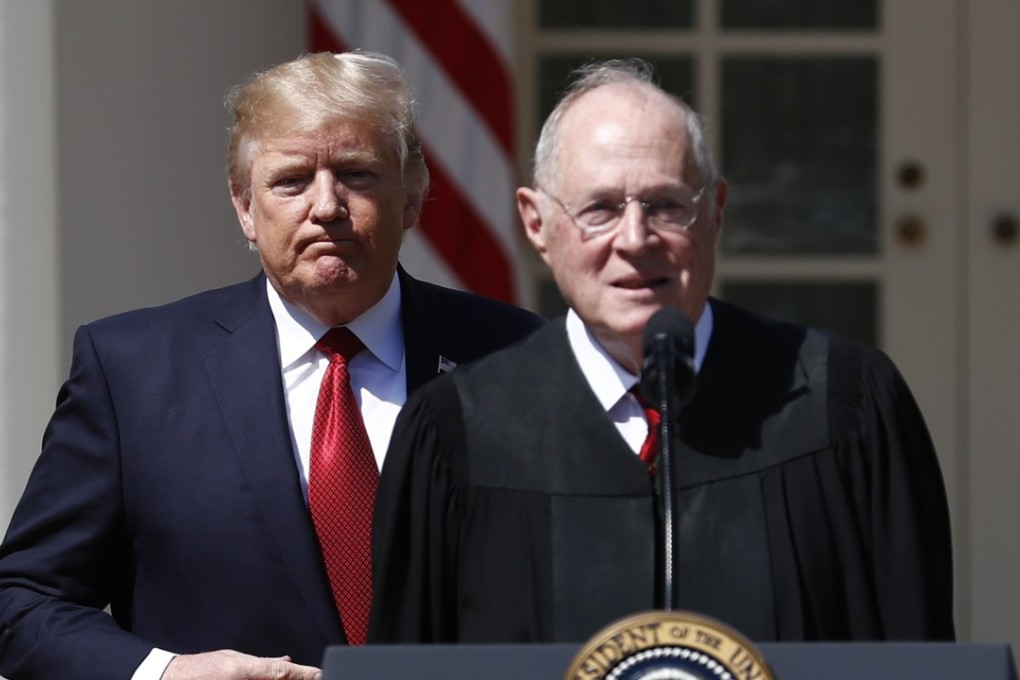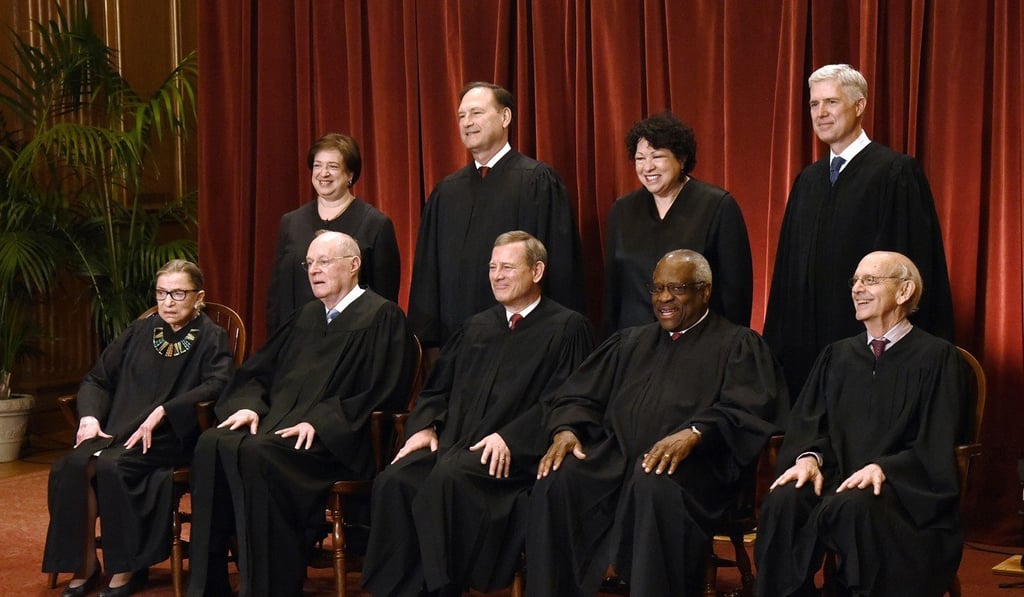Analysis: with retirement of US Supreme Court Justice Anthony Kennedy, Trump just seized the keys to the future
Presidents come and go, but the choice of a new judge giving conservatives a solid majority could help shape US society for decades

The retirement of Justice Anthony Kennedy is a political earthquake that could affect millions of lives and allow Donald Trump to put a stamp on America that will endure long after he leaves the White House.
Presidents come and go, and their policies can swiftly be reversed, as Trump has demonstrated in seeking to erase much of Barack Obama’s legacy. But justices are appointed for life to the Supreme Court, which plays an outsize role in American life compared to equivalent bodies around the world.
That makes Kennedy’s retirement the most momentous political event in the US since the election of Trump.
Kennedy’s successor “could radically alter the course of American justice for decades”, warned Nancy Pelosi, Democratic minority leader in the House, adding: “The future of our democracy is at stake.”
